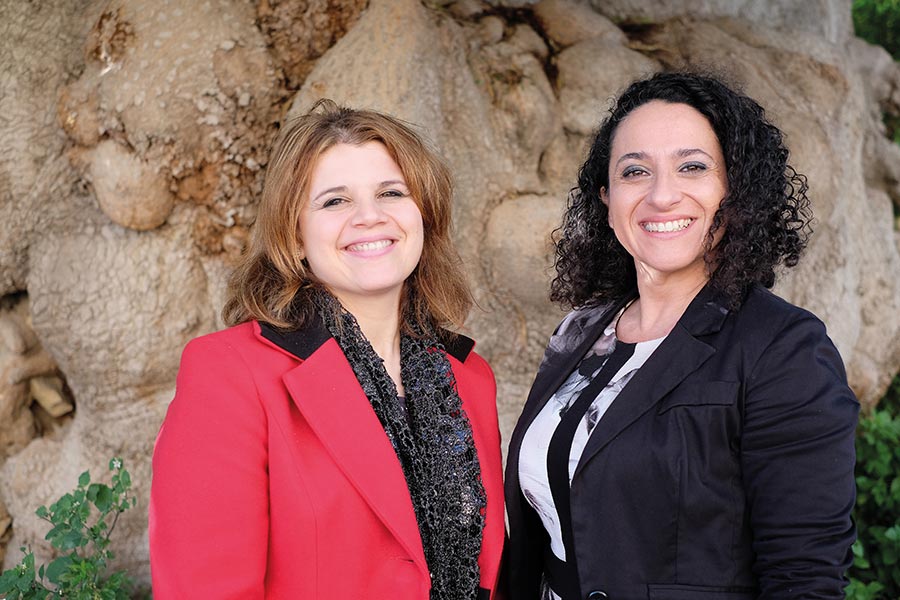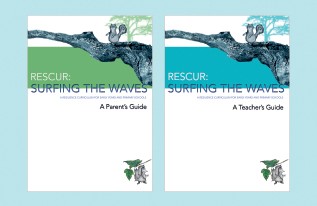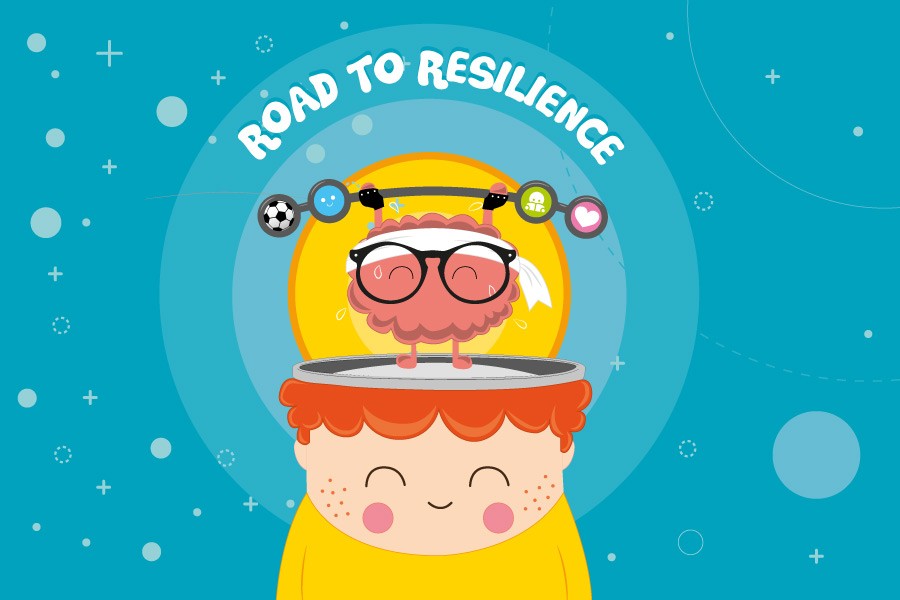Hardships do not befall us all in equal measure. Cassi Camilleri talks to Prof. Carmel Cefai about his work at the Centre for Resilience and Socio-Emotional Health and the dedicated curriculum that seeks to impart the skill of resilience to those who need it most.
Kate Reardon states that one of the signs of a ‘good school’ is its ability to teach its students how to overcome difficult stumbling blocks life puts in their way and ensure they keep growing academically, socially, and emotionally. Director of the Centre for Resilience and Socio-Emotional Health Professor Carmel Cefai would agree. Interested in the development of resilience in children from marginalised contexts, Cefai is working with five other European universities on a project that seeks to equip young people from difficult backgrounds with the skills they need to grow healthily. This project is the resilience curriculum —RESCUR Surfing the Waves.
Cefai defines resilience as a transactional process between individual qualities a person has and the context within which they operate. It is a process of successful adaptation and transformation despite risk and adversity. Resilience is not a trait a child will inherently have, nor is it one that is automatically kept once achieved, it is about learning to overcome obstacles and adapt effectively in order to continue growing and thriving.
“Resilience is not a trait a child will inherently have […] it is about learning to overcome obstacles and adapt effectively in order to continue growing and thriving.”
RESCUR Surfing the Waves seeks to promote equity, social inclusion and social justice within a multicultural European society that is currently facing various challenges in this regard. The project focuses on early years and primary education, targeting young, vulnerable children exposed to potential disadvantage, discrimination and exclusion. Cefai highlights the struggles of children from Roma communities throughout Europe as an example of the people who will benefit from the programme. These are children who come from the biggest minority on the continent, he says, who face risks such as absenteeism and early school leaving, unemployment and social exclusion. Closer to home, the curriculum also targets immigrant children and children with disability and learning difficulties amongst others. Through intercultural and transnational collaboration, this new curriculum takes into account current social, economic, and technological needs while developing in learners the knowledge and skills needed to overcome such challenges in their lives in the hope that they too will achieve academic success and social and emotional wellbeing.

The University of Malta has been involved in RESCUR since its inception, with Cefai kicking off the project as its coordinator along with various European counterparts, including Italy, Croatia, Portugal, Sweden, and Greece. Cefai was involved throughout the project’s journey, starting with the construction of a resilience curriculum in the first year. Activities are spread over six major themes such as developing healthy relationships, developing a growth mindset, developing self determination and turning challenges into opportunities. What followed after was a process of evaluation including piloting, internal evaluation, and external evaluation. The pilot evaluation of the curriculum was carried out in 199 classrooms with 1,935 students spanning six countries. Activities included mindfulness, storytelling with puppets, role plays, music, drama, drawing, and take home activities, among others. Teachers Marika Vella Montebello and Isabelle Farrugia, active participants in the project, said the use of visual tools was very useful. Six-year-olds with short attention spans need something attractive to keep them interested, they said, so the use of visuals combined with movement was very effective.
While the exercises were to be conducted just once a week, Isabelle notes that she also tried taking the ideas and reinforcing them across the curriculum throughout the rest of the week. Marisa noted the positive effect the exercises were having on her students. She spoke of one boy in particular who portrayed distinctly pessimistic behaviour in the classroom, complaining at every given opportunity. It was later determined that this behaviour stemmed from his belief that his mother showed preference to his sister. Over the year, with the RESCUR programme, his positivity improved greatly, Marisa says. Interestingly, while the structure of the curriculum is very present, the flexibility allowed during implementation stage is noteworthy. Material is not only translated to the country’s language but stories are adapted, with characters getting local names and environments changed to reflect the child’s real-world surroundings. In Malta, for example, the forests and mountains in the stories were changed to hills and gardens to create a familiarity that would have otherwise been missing. That said, the basic structure of the curriculum and its themes remain intact. it is important to preserve programme integrity, Cefai emphasises.
“Material is not only translated to the country’s language but stories are adapted, with characters getting local names and contexts changed to reflect the child’s real-world surroundings.”
Of course, it is not just the children who need to be resilient. ‘We know that teachers will be in a stronger position to promote student resilience if they are resilient themselves,’ notes Cefai. In fact, RESCUR has made teacher training mandatory, instructing educators on how best to use their activities, how to respond to the student interventions and so on. Respect is also high on the priority list, and teachers always need to ensure that they are following a specific pedagogical approach, caring and inclusive, where all children can have a sense of belonging,x and engagement.
The child’s parents are a very important part of the equation here. Home tasks within the curriculum are designed specifically to be completed by the parents with their children. Parents also receive a Parents’ Guide with tips and strategies they can employ to build up their children’s strengths. There is, however, something more important that parents need to do for the curriculum to be fully covered. As in the case of the classroom’s teachers, parents are encouraged to be good role models of the skills being learnt for their children.
The preliminary results from the pilot implementation of the curriculum were overwhelmingly positive. Teachers and learners alike found it ‘highly enjoyable, useful, relevant, and easy to use.’

RESCUR Surfing the Waves seeks to promote equity, social inclusion and social justice within a multicultural European society that is currently facing various challenges in this regard.The project focuses on early years and primary education, targeting young, vulnerable children exposed to potential disadvantage, discrimination and exclusion.
It was even said that they looked forward to having the programme implemented on a regular basis as part of the mainstream curriculum. On this note, when asked what happens next with RESCUR, Cefai has a very clear view of the road to be travelled. The curriculum now needs to undergo rigorous evaluation.
Locally, enthusiasm for the project is already very apparent with a cluster of Maltese schools in Malta expressing interest in implementing the curriculum in their classrooms. And not only that—the appeal has traveled beyond Europe, Cefai states. USA and Australia have their eye on the valuable work being done despite the numerous programmes already developed on that side of the world.
All of this continues to reinforce that which everyone already knows—investing in children means investing in our own future. What could be more valuable?





Comments are closed for this article!